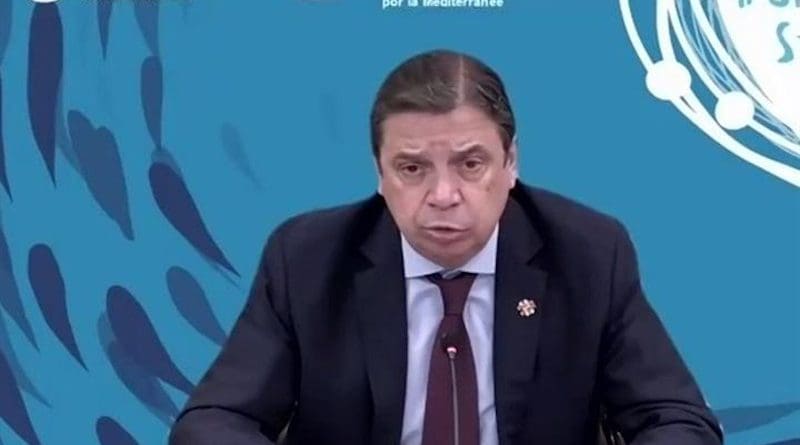Planas Says Spain Will Exercise Responsible Leadership In Sustainable Fisheries In Mediterranean
Spain’s Minister for Agriculture, Fisheries and Food, Luis Planas, took part in the high-level meeting, under the title “A new vision for sustainable fisheries and aquaculture in the Mediterranean”.
The Minister for Agriculture, Fisheries and Food, Luis Planas, took part in the high-level meeting chaired by the Director-General of the Food and Agriculture Organisation of the United Nations (FAO), Qu Dongyu, the European Union Commissioner for the Environment, Oceans and Fisheries, Virginijus Sinkevičius, and the President of the General Fisheries Commission for the Mediterranean (GFCM), Roland Kristo, under the title “A new vision for sustainable fisheries and aquaculture in the Mediterranean”.
The meeting, which was held by videoconference and brought together 16 fisheries ministers and 9 high-level representatives from countries of the Mediterranean basin and the Red Sea, served as a framework to present the adherence to the new 2030 Strategy of the General Fisheries Commission for the Mediterranean (GFCM), aimed at the sustainability of fisheries and aquaculture in the entire region.
In this regard, the Minister for Agriculture, Fisheries and Food stated that “Spain is renewing its commitment to fisheries sustainability with its support for the 2030 Strategy of the General Fisheries Commission for the Mediterranean”.
Within the European Union, Spain ranks first in terms of fleet capacity, fishing production and processing. “That is why the sustainability of resources and the marine environment is a priority for the Government of Spain and, consequently, our country will exercise responsible leadership in sustainable fisheries in the Mediterranean”.
Data from the latest FAO report on “The State of Mediterranean and Black Sea Fisheries”, December 2020, show, for the first time in several decades, positive trends in the state of the region’s fisheries resources.
“It is proof that when we have scientific knowledge, when we manage it properly and, above all, when we have the collaboration of the sector, we obtain interesting advances in the conservation of our seas,” Planas stressed.
GFCM’s 2030 Strategy now seeks to consolidate this trend through actions related to the profitability of fisheries, improving employment conditions, promoting sustainable aquaculture, collaboration and combating illegal, unreported and unregulated (IUU) fishing.
In this context, Minister Planas recalled that, like almost all environmental challenges, fisheries and aquaculture management cannot be tackled in isolation, and for this reason, it is essential to integrate it into broader planning and co-governance frameworks.
The minister stressed that the FAO and the European Union must continue to play a leading role in promoting and coordinating initiatives to make progress in the sustainability of the Mediterranean and the Black Sea. The FAO, because of its international dimension, and the GFCM, because of the strategic objectives it pursues, are the ideal forum to advance this common project.
Spain has been a member of the GFCM since practically its outset, more than 70 years ago. The Government of Spain is determined to continue supporting it and contributing to its functioning. Last October, for example, Malaga became the headquarters of the Regional Office for the Western Mediterranean, from where fisheries cooperation actions are deployed between the countries bordering the region.

